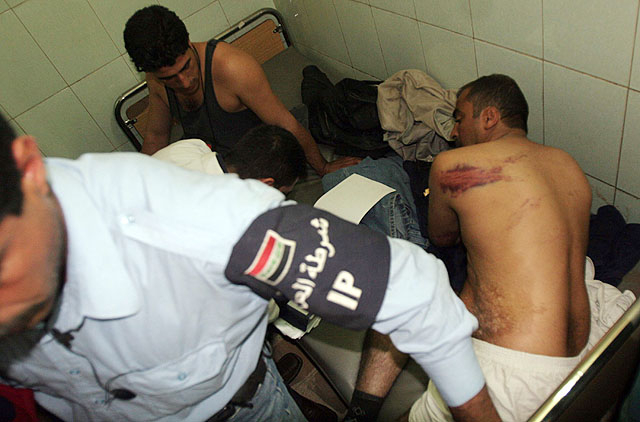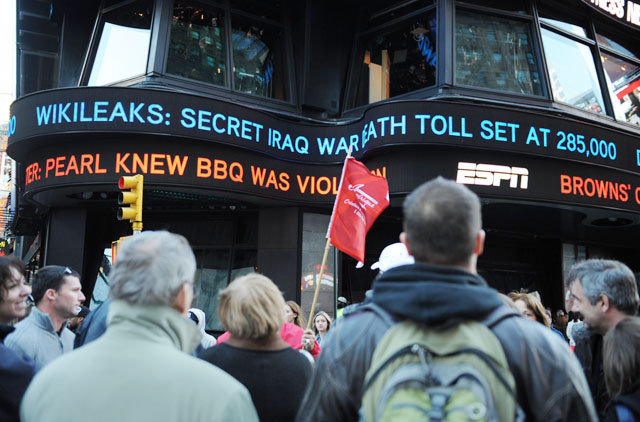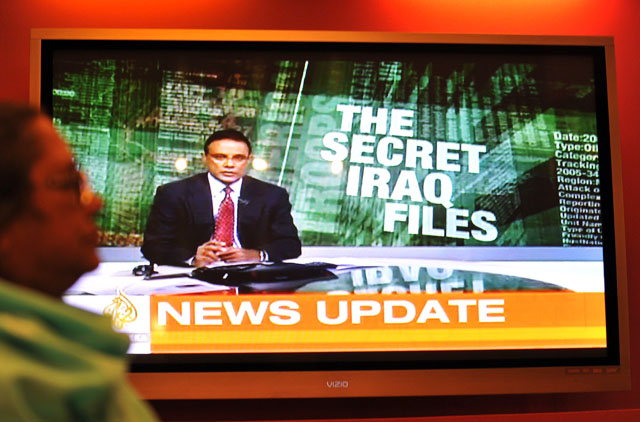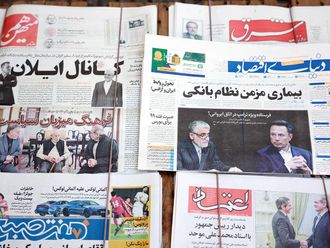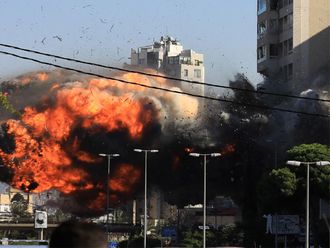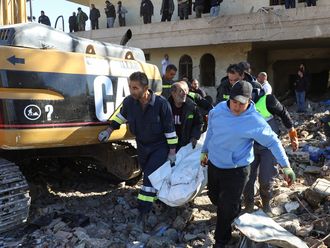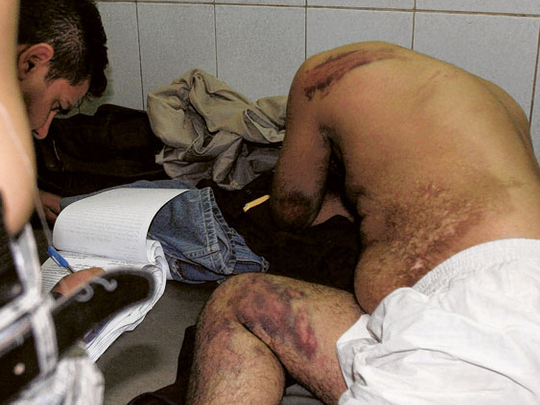
London: Graphic accounts of torture, civilian killings and Iran's hand in the Iraq war are detailed in hundreds of thousands of US military documents made public Friday on the whistleblower website WikiLeaks.
Across nearly 400,000 pages of secret military field reports spanning five years, the largest military leak in history, a grim picture emerges of years of blood and suffering following the 2003 US invasion to oust Saddam Hussain.
What's in WikiLeaks' Iraq war logs?
Fact file: All you need to know about WikiLeaks
Many of the secret documents, which span from 2004 to 2009, chronicle claims of abuse by Iraqi security forces, while others appear to show that American troops did nothing to stop state-sanctioned torture.
Documents detail Iraq 'bloodbath'
Speaking to CNN after the documents' publication, the whisteblower's founder Julian Assange said said they presented a much more straightforward picture than material on the conflict in Afghanistan previously published by Wikileaks.
"These documents reveal six years of the Iraq war at a ground level detail - the troops on the ground, their reports, what they were seeing, what they were saying and what they were doing," Assange told the broadcaster.
The Iraq documents cover the deaths of some 104,000 people over six years - compared the deaths of 20,000 people in Afghanistan detailed in previously released papers.
"We're talking about a five times greater kill rate in Iraq, really a comparative bloodbath compared to Afghanistan," he told CNN.
The Iraq documents gave "not just the aggregate, not just that, you know, 'in Fallujah a lot of people died,' but rather the deaths of each person, with precise geographic coordinates and the operation under which they died.
"That is the big outcome for us, is that these people whose deaths were previously anonymous, they are no longer anonymous," he added. "We can see where they died and under what circumstances.
"I think the message of this material is powerful and perhaps a little easier to understand than the complex situation in Afghanistan," he added.
The documents comprise the second such release from the controversial website, which accused the United States of "war crimes" after earlier releasing some 92,000 similar secret military files detailing operations in Afghanistan.
"There are over 300 recorded reports of coalition forces committing torture and abuse of detainees across 284 reports and over 1,000 cases of Iraqi security forces committing similar crimes," WikiLeaks said in a press release.
"There are numerous cases of what appear to be clear war crimes by US forces, such as the deliberate killing of persons trying to surrender," WikiLeaks said.
After WikiLeaks made the files available to the Guardian newspaper, the New York Times, Le Monde and Der Spiegel weeks ago, the website sent a Twitter message to select journalists, in a secretive invite that turned out to be a three-hour lock-in preview of the documents just before their publication.
One Iraqi detainee claimed he was "blindfolded and beaten with a wire by Iraqi Police on two consecutive nights," near Ramadi in 2008, according to documents seen by AFP.
Another detainee alleged that after being arrested at his home last year and transferred to a military HQ, "his hands were bound behind his back, (he) was placed in a stress position... and the bottoms of his feet were beaten with an object."
The Guardian newspaper said on its website the leaked documents showed "US authorities failed to investigate hundreds of reports of abuse, torture, rape and even murder by Iraqi police and soldiers whose conduct appears to be systematic and normally unpunished."
It added that "more than 15,000 civilians died in previously unknown incidents," going on to say that "US and UK officials have insisted that no official record of civilian casualties exists but the logs record 66,081 non-combatant deaths out of a total of 109,000 fatalities."
And the Guardian said the "numerous" reports of detainee abuse, often supported by medical evidence, "describe prisoners shackled, blindfolded and hung by wrists or ankles, and subjected to whipping, punching, kicking or electric shocks." It added: "Six reports end with a detainee's apparent death."
The Guardian said WikiLeaks is thought to have obtained the electronic archive from the "same dissident US army intelligence analyst" who leaked 90,000 logs about the war in Afghanistan this year.
Al Jazeera concluded that major findings included a US military cover-up of Iraqi state-sanctioned torture and "hundreds" of civilians deaths at manned American checkpoints after the US-led invasion of 2003.
The Qatar-based satellite broadcaster also said the leaked papers, dating from January 1, 2004 to December 31, 2009, show the United States kept a death count throughout the war, despite US denials.
On Iran's role in the conflict, the secret US files show Tehran waging a shadow war with US troops in Iraq, with a firefight erupting on the border and Tehran allegedly using militias to kill and kidnap American soldiers.
The documents describe Iran arming and training Iraqi hit squads to carry out attacks on coalition troops and Iraqi government officials, with the elite Iranian Revolutionary Guard Corps suspected of playing a crucial role, the Times and the Guardian reported, citing the files.
Attacks backed by Iran persisted after US President Barack Obama took office in January 2009, with no sign that the new leader's more conciliatory tone led to any change in Tehran's support for the militias, the New York Times wrote.
The documents describe accounts from detainees, the diary of a captured militant and the discovery of numerous weapons caches as proof of Iran's designs.
US Secretary of State Hillary Clinton condemned "in the most clear terms" the leaks of any documents putting Americans at risk, while the Pentagon warned that releasing secret military documents could endanger US troops and Iraqi civilians.
"By disclosing such sensitive information, WikiLeaks continues to put at risk the lives of our troops, their coalition partners and those Iraqis and Afghans working with us," Pentagon press secretary Geoff Morrell said.
He said the documents were "essentially snapshots of events, both tragic and mundane, and do not tell the whole story."
Do you trust the information provided by WikiLeaks? Is the website more credible than news agencies?


